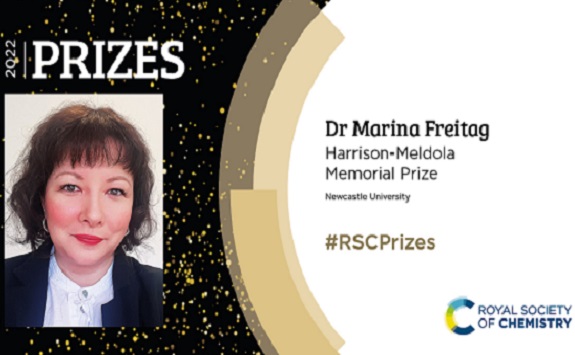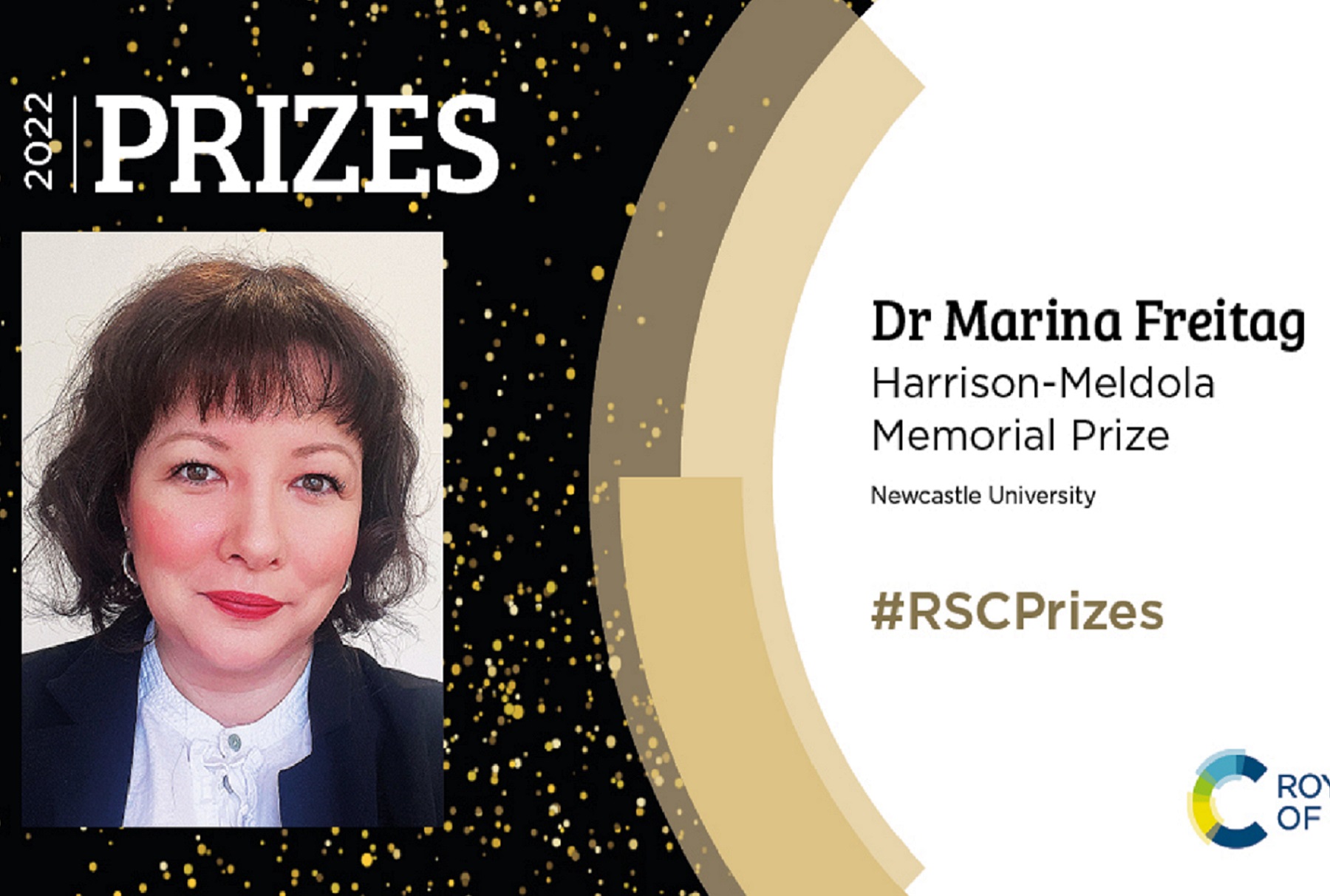University scientist wins prestigious Royal Society of Chemistry Prize
Dr Marina Freitag has been named one of winners of the Royal Society of Chemistry’s Harrison-Meldola Memorial Prize
7 June 2022
Dr Marina Freitag has been named one of winners of the Royal Society of Chemistry’s Harrison-Meldola Memorial Prize in recognition of meritorious and promising original investigations in chemistry and published results of those investigations.
Dr Freitag won the prize for outstanding work to develop, elaborate, and understand novel energy materials. She joins a prestigious list of past winners in the RSC’s prize portfolio, 60 of whom have gone on to win Nobel Prizes for their work.
Based in the School of Natural and Environmental Sciences, Dr Freitag’s research focuses on hybrid photovoltaics, energy materials to develop new light-powered technologies.
After receiving the prize, Dr Freitag, said: “The Harrison-Meldola Memorial Prize 2022 is an honour and a privilege that I value greatly. The prize also recognises the hard work and creativity of my incredible team and collaborators with whom I've had the opportunity to work.”
Printable photovoltaics made from low-cost, environmentally friendly materials have the potential to transform the energy sector for the benefit of humanity worldwide. The majority of progress has been made toward this aim via the development of more powerful light-absorbing materials. However, reliability and storage coupling continue to be hurdles to the widespread use of solar systems.
Dr Freitag addresses these issues by focusing on the materials responsible for charge transport in photovoltaic cells, which is critical for both stability and power output. The charge transport materials are based on coordination complexes and polymers. Their structure is made up of easily manipulatable building blocks made of abundant and non-toxic metals, like copper, iron and nickel, that are joined together by a non-metal backbone that governs their energy, form and stability.
Recently, Dr Freitag pioneered a new direction in indoor device design, using these new energy materials to construct ‘smart zombies’. These are wireless devices that capture indoor light with exceptional efficiency. Combined with IoT and machine learning, they are smart enough to adapt to the amount of light available while performing the main functions of an Internet of Things device (a hardware device that is connected to the internet and other devices). She created a photovoltaic system that adaptively uses available energy, delivering an efficient source of sustainable energy to devices using a revolutionary mix of artificial intelligence and automated learning.
Dr Helen Pain, Chief Executive of the Royal Society of Chemistry, said: “Great science changes the way we think about things – either through the techniques used, the findings themselves, the products that emerge or even in how we interact with the world and those around us. Importantly, it also allows us to reflect on the incredible people involved in this work and how they have achieved their results.
“Although we are in the midst of negotiating a particularly turbulent and challenging era, it is important to celebrate successes and advances in understanding as genuine opportunities to improve our lives. The work of Dr Freitag is a fantastic example of why we celebrate great science, and we’re very proud to recognise their contribution today.”
The Royal Society of Chemistry’s prizes have recognised excellence in the chemical sciences for more than 150 years. In 2019, the organisation announced the biggest overhaul of this portfolio in its history, designed to better reflect modern scientific work and culture.
The Research and Innovation Prizes celebrate brilliant individuals across industry and academia. They include prizes for those at different career stages in general chemistry and for those working in specific fields, as well as interdisciplinary prizes and prizes for those in specific roles.

